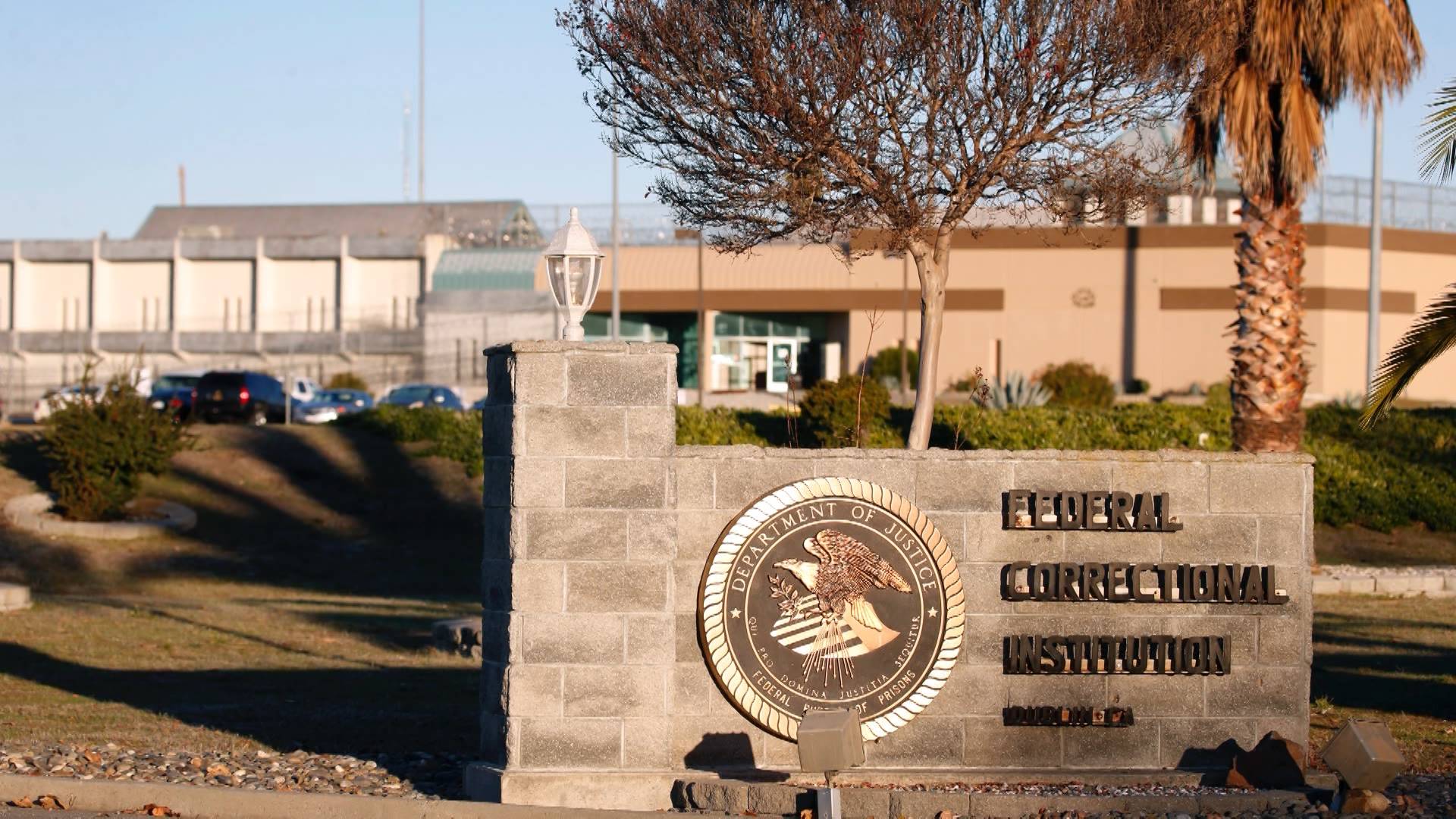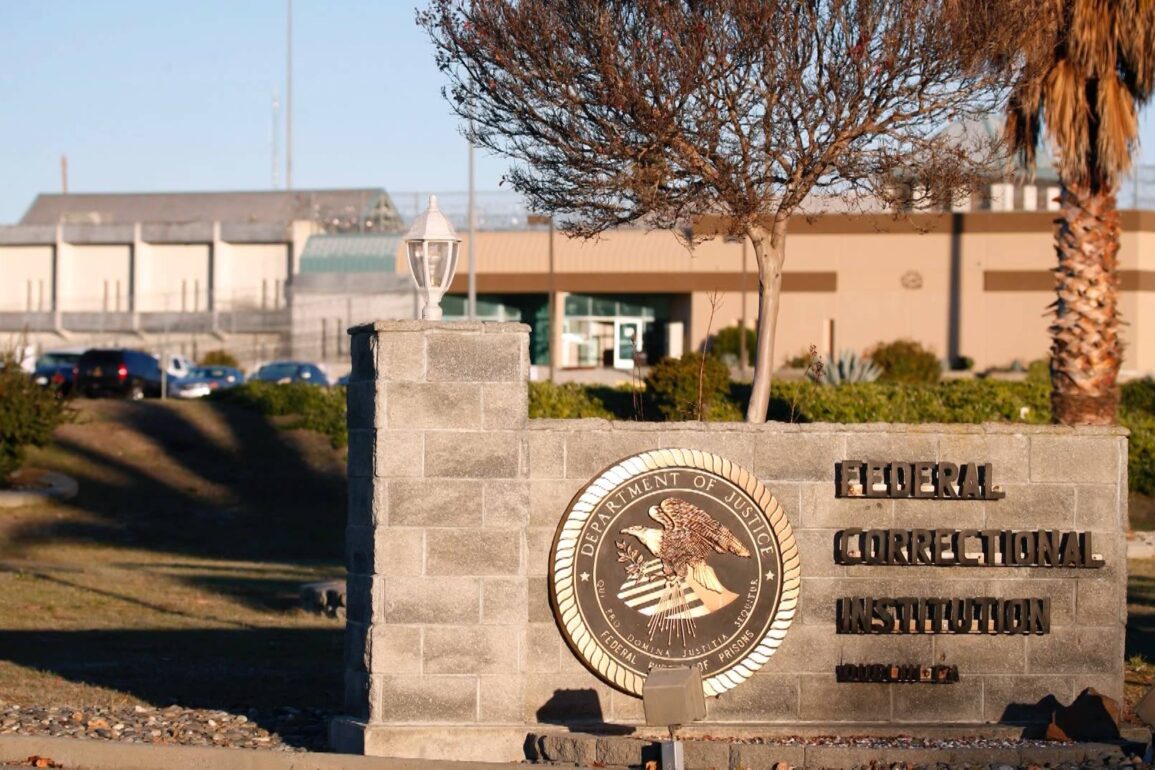
“When you’re in prison, the retaliation starts. … I don’t think my judge sentenced me to go through this.” The U.S. government has agreed to pay a record-breaking amount of nearly $116 million to settle lawsuits brought by 103 people who survived sexual abuse and assault at a federal women’s prison in California. The facility, FCI Dublin, was shuttered earlier this year. Its former warden is now himself imprisoned after being convicted of sexually abusing incarcerated people under his care. Aimee Chavira, who was formerly incarcerated at FCI Dublin and is part of the class-action sexual abuse lawsuit against the Bureau of Prisons, says the settlement, while welcomed, “doesn’t change anything. No amount of money will change what was done to us and what did happen.” Community organizer Courtney Hanson helped advocate for survivors with the Dublin Prison Solidarity Coalition. She calls for “policy changes to ensure that this type of staff sexual abuse stops happening” in prisons across the country.
TRANSCRIPT
This is a rush transcript. Copy may not be in its final form.
AMY GOODMAN: This is Democracy Now!, democracynow.org, The War and Peace Report. I’m Amy Goodman, with Nermeen Shaikh. We’re having some international audio connection issues, so we’re going to be going to the Human Rights Watch report on Gaza, as well as on mass graves in Syria, a little later in the broadcast. But we’re going to look right now at what’s happening here at home in California.
NERMEEN SHAIKH: The U.S. government has agreed to pay nearly $116 million to settle lawsuits brought by 103 women who survived sexual abuse and assault at a federal prison in Dublin, California, which was shuttered earlier this year. The facility, FCI Dublin, became known as the “rape club” due to rampant sexual abuse by prison staff, including the former warden, who’s now in jail after being convicted of sexually abusing women at the prison. The Los Angeles Times reports $116 million is the largest amount ever paid by the federal government for misconduct at a federal prison.
AMY GOODMAN: We’re joined now by two guests. Courtney Hanson is a community organizer with the California Coalition for Women Prisoners, which helped launch the Dublin Prison Solidarity Coalition to advocate, alongside survivors, for systemic changes inside prisons. Aimee Chavira was formerly incarcerated at FCI Dublin and is part of the class-action sexual abuse lawsuit against the Federal Bureau of Prisons.
We’re going to go first to Courtney. Courtney Hanson, explain the background of this case.
COURTNEY HANSON: Well, as you said, this current monetary settlement is the largest aggregate settlement in BOP history. And we are seeing this type of legal victory because of the courage of survivors who were incarcerated at FCI Dublin. And our organization, the California Coalition for Women Prisoners, started going into Dublin in 2022 with extremely dedicated attorneys to hear these survivors who were speaking out and build power and solidarity with them across the walls.
NERMEEN SHAIKH: And, Aimee, if you could respond to this decision by the federal government to pay $116 million to women? You, yourself, were imprisoned there.
AIMEE CHAVIRA: Yes. Hi. Good morning.
What do I think? I think this is a victory. I think this shows that everything that has been going on in there was — and it is true, and it’s still going on. It doesn’t change anything. Money — no amount of money will change what was done to us and what continues to happen.
AMY GOODMAN: Aimee, can you explain what did happen? Tell us, over these last years, what took place, and when you were imprisoned there in the Dublin federal prison.
AIMEE CHAVIRA: Sexual abuse, rape, assault, verbal abuse, retaliation. Behind these federal walls, people don’t understand and can’t imagine the severity of this problem. We were sentenced to go to prison and pay for our crime, which is no problem. But that wasn’t happening. We were paying for our crime and being assaulted, sexually assaulted, mistreated, retaliated on. It went from locking us in our room — I was locked in my room and asked for sexual — for me to conduct sexual activities or things. I was retaliated, by the warden — who is now in prison — as I complained. There’s a lot of — once you start complaining behind — you know, when you’re in prison, the retaliation starts. It’s not easy. It’s not fun. It’s not funny. These are real things that are going on in these prisons. Not just Dublin, FCI Dublin, went through this. This is across the board. These are all prisons.
One of my — I’m sorry if I get a little bit emotional. The retaliation went from once you complain to the warden — I myself complained to the warden on one morning. That same morning, he sent Officer Ramos, who is no longer alive — he took his own life — with another officer, Officer DeLuca. I was — they strip-searched three inmates in my cell, then took me to which is called R&D, to when you get to prison and, you know, you’ve got to go through this process. And I was taken there to get strip-searched, to later on being asked and demanded that — it was a direct order, for me to strip, hand my clothes over and use my fingers, my hand, to go across my private part, not one, not two, a couple — you know, more than a couple of times.
Is this right? Is this what — I don’t think my judge sentenced me to go through this. These are heinous crimes. The punishment that I believe they should get is more than what we have gotten. We have gotten very far, and I’m very grateful. I have joy. But we still have a long journey ahead of us to keep fighting for — you know, for these officers in uniform to be held accountable.
AMY GOODMAN: Aimee, I just want to say how brave you are, what a woman of courage you are, to be willing to speak out about what happened to you. And, of course, what this has led to is this more than $100 million settlement. And I’m wondering, Courtney, if you can explain how this was organized. This in no way takes away this pain and suffering from the women in the prison, but how this settlement came about?
COURTNEY HANSON: Well, I just want to say also it has been truly the honor of a lifetime to organize alongside courageous survivors like Aimee. And this was truly a robust, collective, grassroots effort, that could not have happened, first of all, without survivors organizing amongst themselves, and then dedicated movement attorneys, those at Rights Behind Bars and the California Collaborative for Immigrant Justice, and then our organization also, with an inside-outside model, going in and bringing the information and the stories and the demands out.
And it’s also important to note that this monetary win comes on the heels of another massive legal victory earlier this month in a separate but related class-action lawsuit in which our organization was a lead plaintiff alongside individual survivors. And this is a lawsuit that is demanding — and, it looks like, winning, through a proposed settlement agreement and consent decree — policy changes. We need policy changes to ensure that this type of staff sexual abuse stops happening. And like Aimee said, it’s still happening all across BOP facilities in this country, where Dublin survivors are still being held by their abusers.
NERMEEN SHAIKH: So, Aimee, just to go back to you, I mean, we’re very, very sorry for this horrific violence that you endured in this prison. I just want to ask: Were you aware at the time that there were so many other women who were being subjected to sexual violence, as well, at the same time as you were?
AIMEE CHAVIRA: Yes. I mean, it’s very important for people to know that it’s hard to communicate with each other, because it causes shame. You know, you’re ashamed. It’s embarrassing. But we all knew about each other. And it’s hard — it was hard then to speak with one another of the stuff that was going on, of us being seen being showered, you know, them opening our curtains as we’re in the shower, as we’re changing and, you know, we’re not dressed. So many women in there that I know and that we now are able to talk about and say, “I’m so sorry. I knew what was going on, and we didn’t talk about it then.” This was not — I mean, and this is just 103 women. We’re talking about this prison held a lot more prisoners, a lot more inmates at this time.
So, it was their culture that these officers created there. This was their small world of them abusing us. And it happened every time, every day. You know, you looked to your left, and something was going on to someone else. You looked to your right, and, you know, there’s another inmate being locked in their room. This is a huge, a huge problem. This is not just the culture at Dublin. This is happening in other prisons across the board. And it’s important for people to know that we need to stop. We need to stop this abuse that we’re going through.
AMY GOODMAN: And now this settlement means, Aimee, that you and the other women will receive, on average, $1.1 million, each of you?
AIMEE CHAVIRA: No. I think people think that, you know, it’s going to go evenly. That’s not the way it’s going to happen. There is a judge. You know, I’m not a special at, you know — answer this for you. But it’s not even across the board, no.
AMY GOODMAN: Well, Aimee Chavira, we want to say thank you so much for being with us and being willing to share your story, formerly incarcerated at FCI Dublin, the federal prison in California, part of the class-action sexual abuse lawsuit against the Federal Bureau of Prisons. And Courtney Hanson, community organizer with the California Coalition for Women Prisoners, which helped launch the Dublin Prison Solidarity Coalition. Last question to Courtney: Courtney, are there other prisons where you’re going through the same kind of negotiation and could lead to settlements like this?
COURTNEY HANSON: Our current proposed consent decree in our class-action lawsuit, which was demanding injunctive relief and policy changes on behalf of everybody, like Aimee said, who was impacted by the culture of violence at Dublin, if that consent decree gets approved by the judge, it will apply to over 12 BOP facilities across the country where Dublin survivors are currently held. And this is just the beginning; this is not the end. We will continue, through grassroots advocacy — perhaps future legal action, if necessary — to figure out how to ensure that this never happens again. And we need to note that Biden, President Biden, with a stroke of his pen, could ensure that these Dublin survivors come home for the holidays, where they belong, where they could heal with their families in safety.
AMY GOODMAN: Courtney Hanson, thank you so much.
This post was originally published on this site be sure to check out more of their content.









